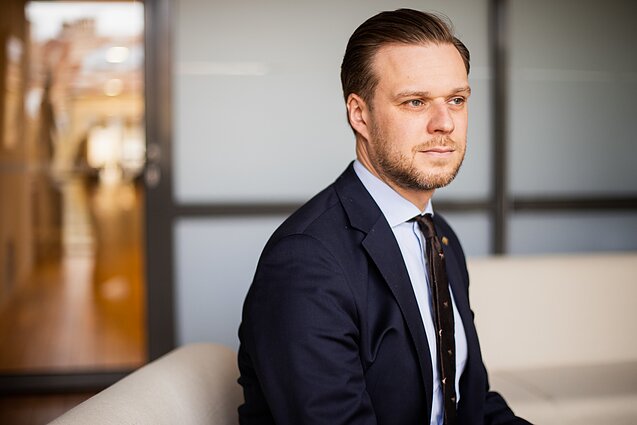
Peace or Regime Change?
In an interview with LRT.lt published on April 13, Lithuanian foreign minister Gabrielius Landsbergis discussed the implications of Russia’s aggression against Ukraine and its effect on Europe, the possible end of Putinism in Russia, and the readiness of Lithuania’s allies to defend the Baltic states.
To begin with, Landsbergis noted that the Russia with which the NATO-Russia Treaty was signed in 1997 no longer exists. Now that country is a Putinist Russia, with a very large part of the Russian public supporting the slaughter in Ukraine. The West believed the Russians would recognize reality and take to the streets. It was thought that Russia would not be so irrational as to attack Ukraine or NATO. Landsbergis warned that Putinist Russia cannot be perceived according to Western standards. It is a different state, operating according to different laws.
“In the current circumstances, I do not believe that a regime change could come from the Russian public. I believe that de-Putinisation will first take place first in Ukraine. This is Ukraine’s greatest gift to the world. The Putin regime is being dismantled there… at an insanely high price.”
Europeans are protesting at embassies, but their political leaders are hesitant. For some European leaders, the goal is just ending the war, perhaps signing a peace treaty. Some are thinking further, saying that perhaps the goal should be replacing Putin.
“But I keep reminding everyone that here, in Lithuania, we think that as long as there’s this regime, a regime of lies and propaganda, with its institutions and its intelligence services and so on, nothing will change… if we replace Putin, who knows if it won’t get worse. This is a systemic evil that has spread like a cancer throughout the country,” said the foreign minister.
“If we want an end to the war, then we need to put maximum pressure on the Ukrainians to sign a peace treaty under any conditions and that will be it. If we want to replace Putin, then we restrict his scope of action and hope that the dissatisfied elites will overthrow their leader. But if we want systemic change, we need to think in a different way. The country will have to be isolated, and perhaps for a long time, and for us this would be the real end of this war. It is regime change.”
As to Russian propaganda making threats that the Baltic States and Poland are the next targets, Landsbergis noted that “We see that they are watching us, but they have been beaten in Ukraine”. In his view, the whole strength of the West rests on a small stone that is Lithuania or the Suwalki corridor. No one will test NATO’s resilience in the Netherlands, no one will test it on a the beaches of France. If anyone were to test the West, they would test it here. And that will show how strong the West is.”
In every crisis, real leaders emerge. And it is rare that one is unanimously accepted as the leader, except perhaps President Zelensky, who is almost unanimously seen around the world as the leader of the free world, carrying all the burden and doing all the work. On the European side, Landsbergis thinks that despite his communications with Putin, French president Macron seems to be making an effort to carry the burden of leadership. Germany has disappointed the Lithuanian public for not showing leadership, but Landsbergis explained that it is changing, and this is a difficult moment, given the country’s cultural and historical experience, its political dynamics. It can start regaining trust among Lithuanians, because it is are very important there, both economically and in terms of defence, because of the battalion they lead in Lithuania.
Regarding shifting ideological proximities within the European Union, for example, between Poland and Hungary, the foreign minister noted that the European Union is a very complex mechanism with many levels, and negotiations are almost never two-dimensional. Being a very multifaceted union, it has much more dimensions than just, for example, defence.
“NATO is a purely trust-based organization whose sole purpose is to defend each other. That is all. There is no other lever with which we can negotiate. We will defend you – yes, we have to defend you, because of the promise in Article 5. That is why I have said that trust in NATO is something that has to be fought for and is extremely important, and if we were to lose it, it would be a great loss.”
Landsbergis ended the interview on a positive note: “I absolutely believe that Ukraine will win… I think that the real victory will be a complete victory. I would not put a deadline for when it will happen, I wish it as soon as possible, I will do everything to make it happen as soon as possible, as far as I and we as a country can help it. But there will be a victory.” LRT.lt



























